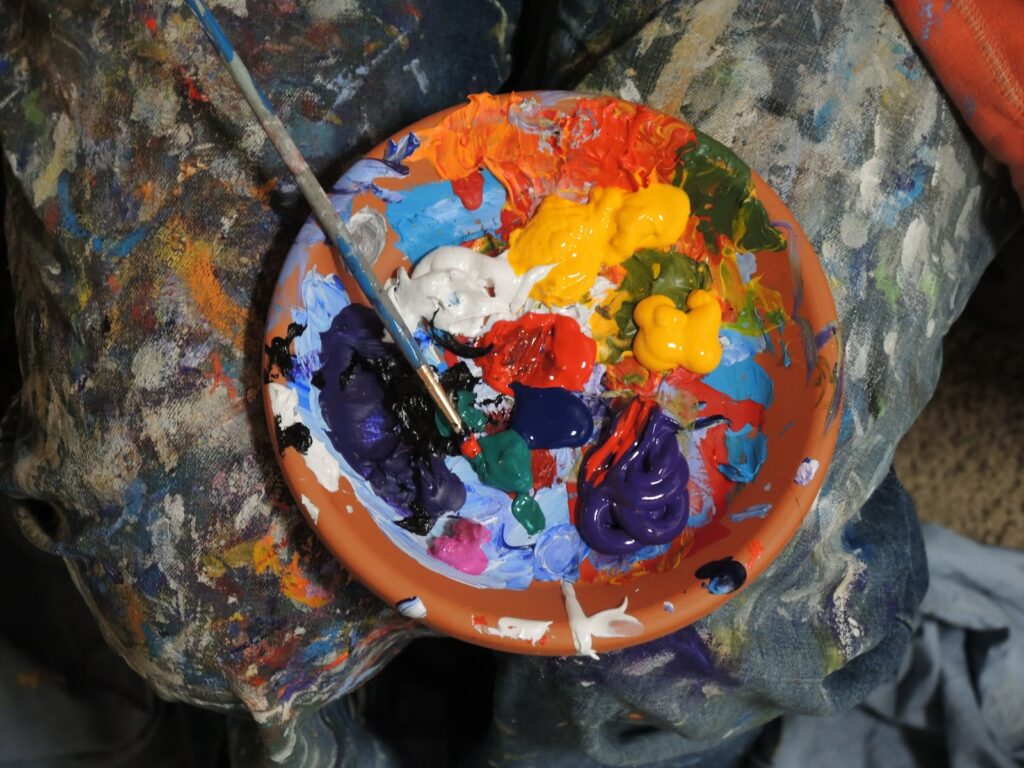From Self-doubt To Self-awareness: What You Don’t Know About Yourself?

What do you know about yourself? Could you honestly say: “I know myself like the back of my hand.” ? From your deepest fear and self-doubt to your self-awareness and the greatest dream, could you be intimately aware of every aspect of your being? You might think that you know yourself inside out – your likes, dislikes, hopes, and fears – but what if the way you view yourself is distorted?
Recent research in neuroscience and psychology has shown that we don’t have privileged access to who we truly are. The way you view yourself is often flawed, and you may not even realise it. This has profound implications for your self-confidence, as well as your relationships with others. In this article, we’ll explore the concept of high expectations and what you don’t know about yourself, drawing on the latest insights from the fields of neuroscience on the impact of self-doubts and blind spots on your wellbeing.
Table of Contents

Are you aware of the power of self-doubts?
Self-doubt is a common experience that can leave you feeling anxious, uncertain, and even defeated. It’s that nagging voice in your head that tells you you’re not good enough, smart enough, or capable enough. At its core, self-doubt is a lack of confidence in yourself and your abilities. Perhaps you want to make a carrier change, or turn your vision into reality, or simply move to another neighbourhood but self-doubt shows up, yet again, telling you to stay where you are.
When you’re consumed by self-doubt, you are not able to make decisions or moving forward with your plans as pursuing your dreams includes taking risks. You may second-guess yourself at every turn, overanalyze your decisions, and ultimately miss out on opportunities. This can lead to feelings of unhappiness and dissatisfaction in life. You may even start to feel like a failure, believing that you’re not living up to your full potential.
However, it’s important to remember that self-doubt is not necessarily a reflection of reality. Your thoughts and feelings are not always accurate representations of the world around you. It’s important to question your self-doubt and challenge its validity.
The good news is that the brain has an incredible ability to change and adapt. With practice, you can learn to re-frame negative thoughts and replace them with more positive ones. This is where questioning self-doubt, not the outcome, becomes crucial. Instead of focusing on the outcome of a situation, focus on the process and what you can learn from it.
Neuroscience has shown that the brain is capable of forming new neural connections throughout life. This means that you can change your thought patterns and build new, positive beliefs about yourself and your abilities. This process takes time and effort, but with practice, you can build confidence and overcome self-doubt.
In summary, self-doubt is a common experience that can hinder happiness and satisfaction in life. However, it’s important to remember that your thoughts and feelings are not always accurate reflections of reality. By questioning self-doubt and focusing on the process, you can build confidence and overcome this common obstacle to reaching your full potential.
Self-doubt can be debilitating, hindering your happiness and success. It is a feeling of uncertainty or lack of confidence in oneself and one’s abilities. It can manifest in different forms, such as imposter syndrome, fear of failure, or lack of assertiveness.
When you doubt yourself, you may avoid taking risks or trying new things, fearing that you will fail or be judged by others. This can lead to missed opportunities for growth and fulfillment in both personal and professional aspects of life. Self-doubt can also affect your mental health, causing anxiety, stress, and even depression.
It is essential to recognize that self-doubt is not a reflection of your true potential or worth. The key is not to let self-doubt control your actions or thoughts. Why not question self-doubt itself, challenging the negative thoughts and beliefs that lead to self-doubt. Acknowledging that thoughts are not facts and that they can be changed. One effective way to do this is through cognitive-behavioral therapy (CBT), which focuses on identifying and changing negative thought patterns and behaviors.
Neuroscience research has shown that self-doubt is linked to the default mode network (DMN) in the brain, which is responsible for self-referential thinking and mind-wandering.

Re-framing your thoughts: making the distance between self- doubt and self-belief
Whether you think you can, or you think you can’t – you’re right.
Henry Ford
Ford’s quote highlights the power of self-belief and the impact it can have on our ability to achieve our goals. Self-doubt can be a significant obstacle to progress, but believing in yourself can help you overcome challenges and reach your potential.
Research has shown that individuals who have high levels of self-belief are more likely to set challenging goals, persist in the face of obstacles, and ultimately achieve their objectives. On the other hand, those who doubt their abilities are more likely to give up and not even try.
It’s important to note that self-belief doesn’t mean that you’ll never fail or face setbacks. Everyone encounters obstacles and setbacks in their journey towards success. However, individuals who have a strong sense of self-belief are more likely to view these challenges as opportunities for growth and learning rather than insurmountable roadblocks.
Take time to briefly reflect on your accomplishments and the obstacles you’ve overcome in the past, what brought you were you are today, but most importantly, ask yourself : where are you going? Use these experiences as evidence that you have what it takes to succeed in the present and future.
Another important factor in developing self-belief is to surround yourself with supportive and encouraging individuals. Seek out mentors and friends who believe in you and your abilities, and who will provide the support and encouragement you need to reach your goals.
Self-doubt can be a major obstacle to joy, but with self-belief, you can overcome it and re-imagine life on your own terms, create your own reality.
If you can dream it, you can do it.
Walt Disney
The bridge between illusions and possibility
The power of imagination has been a driving force behind some of the greatest accomplishments in human history. Everything happens twice, but first, in your mind. If you look around, everything you see, it was at some point a dream in someone’s mind. Dreams are a window into the secret power of your mind. From the creation of simple things you use in everyday life, to intricate works of art and the development of complex technologies, the human imagination has played a critical role in advancing our society.
Imagination can be thought of as a bridge between what is and what could be. It allows us to see beyond the limitations of the present and envision a future that is more vibrant and full of possibility. It helps us break free from the constraints of the here and now and enables us to chart a course towards progress.
But imagination can also be a double-edged sword. It can lead us down paths that are not based in reality and create illusions that cloud our judgement. For example, the desire for fame and fortune can create the illusion that success and happiness are one and the same, leading individuals down a path that may not align with their true values and goals.
However, when used in the right way, imagination can be a powerful tool for personal and societal progress. It can inspire us to think outside of the box and create new solutions to old problems. It can help us envision a better world and motivate us to work towards achieving it.
One example of the power of imagination is in the field of science fiction. Many of the technologies we take for granted today, such as cell phones and computers, were once considered science fiction. The imaginative vision of science fiction authors helped to inspire and shape the development of these technologies.
Ultimately, it is up to each individual to determine how they will use the power of their imagination. It can be a force for good or it can be a source of illusion and distraction. By cultivating a strong sense of self-awareness and focusing on progress rather than just possibility, we can harness the power of our imagination to create a better future for ourselves and for all of humanity.

Common misconceptions about self-awareness
You might think that you know yourself inside out – your likes, dislikes, hopes, and fears – but what if the way you view yourself is distorted? What if your self-image has surprisingly little to do with your actions and behaviors? Recent research in neuroscience and psychology has shown that we don’t have privileged access to who we truly are. The way we view ourselves is often flawed, and we may not even realize it. This has profound implications for our level of happiness and satisfaction , as well as our relationships with others. In this article, we’ll explore the concept of high expectations and what you don’t know about yourself, drawing on the latest insights from the fields of neuroscience and wellbeing to help you uncover your true potential.
You’re not alone in your confusion about self-awareness. In fact, there are many common misconceptions about what it means to truly know yourself.
Unlike what you may think, self-awareness is not a fixed trait that you either have or you don’t. Research in neuroscience suggests that self-awareness is actually a skill that can be developed and honed over time. Just like learning to play an instrument or a sport, self-awareness requires constant practice.
Equally, self-awareness is not only about being aware of your thoughts and emotions. While this is certainly a key aspect of self-awareness, it is not the only one. Self-awareness also involves being aware of your behaviours, patterns, and habits, as well as your influence on others. Each person is known to influence a minimum of 200 people without knowing they do.
Self-awareness is not a one-time achievement, but an ongoing process. Just because you’ve gained some insights about yourself doesn’t mean the work is done. True self-awareness requires a commitment to continual self-reflection and learning.
We mentioned in previous articles practices such as clearing your mental clutter and journaling that can help you tune in to your thoughts, emotions, and behaviours, and start to notice patterns and blind spots.
Ultimately, the key to developing self-awareness is a willingness to be honest with yourself, criticise yourself less, love yourself more, even when it’s uncomfortable. It takes courage to face your flaws and weaknesses when it comes to giving yourself credit, but the rewards are immense. Knowing yourself gives you the confidence to make better decisions, form deeper connections with your inner self and others, and live a meaningful life.

Self-doubt- a threat from within?
Studies show that many people tend to be overly critical of themselves, focusing too much on their flaws instead of their strengths. They are often their own worst critic and this can lead to a distorted view of themselves. In fact, research in neuroscience shows that our brains are wired to pay more attention to negative information, which means we are more likely to notice our flaws than our strengths.
While it’s important to have a brief inventory of your weaknesses, it’s even more important to recognize and celebrate your strengths. Focusing solely on our flaws can lead to feelings of inadequacy and low self-esteem, which can ultimately hold us back from making progress.
It’s important to practise self-compassion and recognize that you are the perfect sum of all your imperfections. Acknowledge your flaws, but don’t let them define you. Instead, focus on your strengths and use them to your advantage. You are born compassionate but you are not born with confidence and self-esteem, and ultimately it is up to you to start building yourself.
This tendency to focus on flaws can lead to negative self-talk and self-doubt. You might even start to believe that you are not good enough, smart enough, or talented enough. But the truth is that these flaws are only part of who you are, and they do not define you.
Instead of dwelling on your flaws, try to focus on your strengths. Consider what you are good at and what you enjoy doing. These are the things that make you unique and can help you achieve your goals. By recognizing and celebrating your strengths, you can build your confidence and self-esteem.
This can help you see yourself in a more positive light and identify areas where you excel.
Another useful tool is to practice positive self-talk. Instead of criticizing yourself for your flaws, focus on your positive qualities and accomplishments. For example, if you make a mistake at work, rather than telling yourself that you are incompetent, remind yourself of past successes and tell yourself that you are capable of learning from your mistakes.
How well do you know yourself?
Have you ever thought that you know yourself inside out? That your likes, dislikes, hopes, and fears are crystal clear to you? The idea that we have privileged access to who we are is widespread, but is it true? Recent psychological research shows that we do not have a clear view of ourselves.
Princeton University psychologist Emily Pronin calls this phenomenon the “introspection illusion.” Our view of ourselves is distorted, but we are not aware of it. This means that our self-image is not always an accurate reflection of our actions.
Self-image is often influenced by unconscious processes. We believe that we are observing ourselves clearly, but the reality is that our self-image is not always accurate. Our motives can also be a mystery to us. Researchers use various techniques to assess a person’s self-image, such as comparing self-assessments with a person’s behavior in laboratory or real-life situations.
Knowing yourself is essential for personal growth and wellbeing. To gain a more accurate view, it’s crucial to take a step back and ask yourself, “what don’t I know about myself?” It could be the first step in gaining a clearer view of who you are and what you want to achieve in life.
So what can you do about it? How can you break free from these limitations and start living as your true self? The first step is to recognize that your self-image is not a fixed or objective truth. It is a constantly evolving perception that is shaped by your experiences, beliefs, and emotions. And while you may not have complete control over these factors, you do have the power to change them.
Here are some steps you can take to improve your self-image:
- Practice self-compassion. Instead of criticizing yourself for your flaws and mistakes, learn to treat yourself with kindness and understanding. Remember that everyone has imperfections, and that you are not defined by your failures.
- Challenge negative self-talk. When you catch yourself thinking negative thoughts about yourself, question their validity. Ask yourself if there is any evidence to support these beliefs, and if they are helpful or harmful to you.
- Focus on your strengths. Instead of dwelling on your weaknesses, make a conscious effort to recognize and appreciate your positive qualities. Make a list of your strengths and accomplishments, and revisit it often to remind yourself of your worth.
- Surround yourself with positivity. Seek out relationships and environments that support and encourage you. Avoid people and situations that bring you down or make you feel small.
- Practice self-care. Take care of your physical, emotional, and mental well-being. Prioritize sleep, exercise, healthy eating, and relaxation. Treat yourself with the same level of care and attention that you would give to someone you love.
By taking these steps, you can start to shift your self-image from one of limitation to one of possibility. You can learn to see yourself as a unique and valuable individual, with your own strengths, weaknesses, and potential for growth. And by doing so, you can unleash your full potential and achieve greater happiness, fulfillment, and success in all areas of your life.

Self-awareness comes with blind spots
Blind spots are an inherent part of human nature, and they can significantly impact our personal and professional lives. One common blind spot is the need to be liked. People often underestimate the extent to which they crave approval, which can lead them to avoid expressing their true opinions or taking actions that might be unpopular. While this may seem like a wise decision at the moment, it can ultimately undermine their credibility, effectiveness, and overall trustworthiness.
Another common blind spot is the intensity of our internal drive to achieve. As a result of our results-oriented mindset, we may unknowingly rush into making commitments without fully listening and understanding the situation. This can lead to miscommunication and misunderstandings, which can ultimately harm our relationships and our ability to achieve our goals.
Additionally, many of us have a blind spot when it comes to feeling unprepared, uncertain, or not having all the answers. This discomfort can prevent us from engaging in collaborative efforts and depending on others. By failing to recognize and address this blind spot, we may miss out on valuable insights and perspectives that could ultimately lead to greater success.
These are just a few examples of the common blind spots that can impact our lives. By taking the time to reflect on our behaviour and mindset, we can become more aware of these blind spots and work to overcome them. This, in turn, can lead to greater personal and professional growth, as well as stronger and more effective relationships.
Take Away Thoughts
You can train your brain to shift your doubt away from questioning your ability to achieve your goals, and towards questioning the validity of the doubt itself. This approach can help you develop greater self-awareness and a more accurate assessment of your abilities, rather than allowing self-doubt to hold you back from pursuing your aspirations.
Recent research in neuroscience has shown that this type of focused attention can also help rewire the brain’s neural pathways, increasing resilience and reducing stress and anxiety. By questioning self-doubt, rather than the outcome, you can develop a more constructive and confident mindset that supports your well-being.
Like many people, you went through a journey of self-discovery that took you through both joy and pain.
I hope you learned that self-awareness is not just about understanding your own strengths and weaknesses. It’s also about recognizing how your thoughts, feelings, and actions impact those around you. Through introspection and reflection, you’ve been able to gain a deeper understanding of who you are, what you stand for, and how you want to live your life.
At times, this journey has been uncomfortable. You’ve had to confront aspects of yourself that you didn’t like or want to acknowledge. But through this process, you’ve also learned to be kinder to yourself and to recognize your worth. You’ve found that self-awareness has given you a sense of control over your life that you didn’t have before.
Now, you use self-awareness to guide your decisions, both big and small. You make choices that align with your values and goals, and you’re better able to handle difficult situations with grace and poise. When you make mistakes, you own up to them and use them as learning opportunities.
In the end, I believe that self-awareness is one of the most valuable gifts you can give yourself. It allows you to live a life that is authentic, meaningful, and fulfilling. And while the journey of self-discovery is never truly over, I am confident in the knowledge that you have of yourself, and excited for what the future holds.





